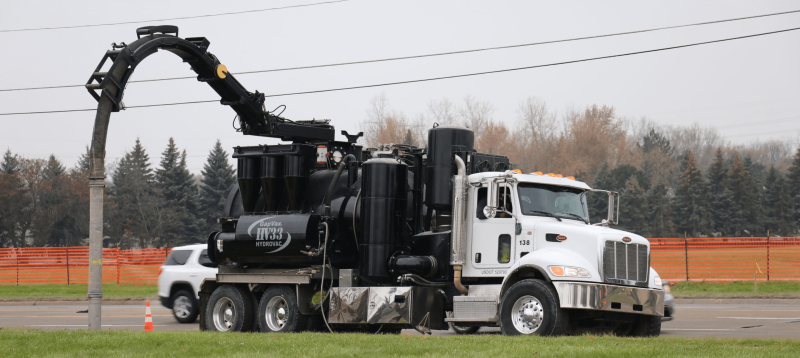Hydroexcavation is the Future of Excavation
Posted 17:43 April 20, 2024
Last Updated 17:43 April 20, 2024

Furthermore, hydrovac excavation offers unparalleled versatility and efficiency compared to traditional excavation methods. Hydrovac trucks are equipped with advanced technology, such as high-pressure water jets and remote-controlled vacuum systems, that allow operators to excavate with precision in tight or hard-to-reach spaces. This versatility makes hydrovac excavation suitable for a wide range of applications, including utility installation, pipeline maintenance, landscaping, and environmental remediation. Additionally, hydrovac trucks can complete excavation tasks more quickly and with fewer personnel compared to traditional digging methods, resulting in shorter project timelines and reduced labor costs.
Another compelling reason hydrovac excavation is the future of excavation is its minimal environmental impact. Traditional excavation methods, such as mechanical digging or trenching, can disrupt soil structure, damage vegetation, and disturb wildlife habitats. In contrast, hydrovac excavation minimizes disturbance to the surrounding environment by using water to loosen soil and a vacuum system to extract debris, leaving the area relatively undisturbed. This environmentally friendly approach reduces erosion, soil compaction, and the risk of soil contamination, making hydrovac excavation a sustainable choice for construction projects in sensitive ecosystems or urban environments.
Moreover, hydrovac excavation offers cost savings and long-term benefits for construction projects. While the initial investment in hydrovac equipment may be higher compared to traditional excavation tools, the efficiency and precision of hydrovac excavation can lead to significant cost savings over time. By reducing the risk of utility strikes, rework, and project delays, hydrovac excavation helps contractors avoid costly repairs, fines, and legal liabilities associated with damage to underground infrastructure. Additionally, the minimal environmental impact of hydrovac excavation can result in savings on restoration and remediation costs, further enhancing the economic viability of construction projects.
Additionally, as regulatory requirements and environmental standards become increasingly stringent, hydrovac excavation is poised to become the preferred method of excavation for government agencies, municipalities, and private developers. Hydrovac excavation meets or exceeds regulatory requirements for safe excavation practices, environmental protection, and worker safety, making it a reliable and compliant choice for construction projects of all sizes. By investing in hydrovac technology, construction companies can demonstrate their commitment to sustainable practices, corporate social responsibility, and regulatory compliance, enhancing their reputation and competitiveness in the marketplace.
In conclusion, hydrovac excavation is the future of excavation in the construction industry due to its superior safety, precision, versatility, environmental sustainability, and cost-effectiveness. As technology continues to advance and environmental concerns become increasingly important, hydrovac excavation is poised to become the preferred method of excavation for construction projects worldwide. By embracing hydrovac technology, construction companies can improve project outcomes, reduce risks, and demonstrate their commitment to safety, sustainability, and innovation in the 21st century.
